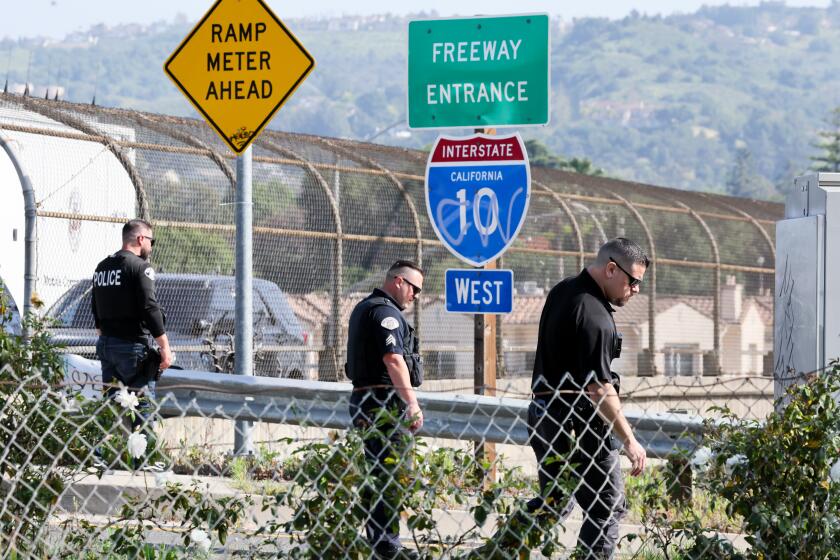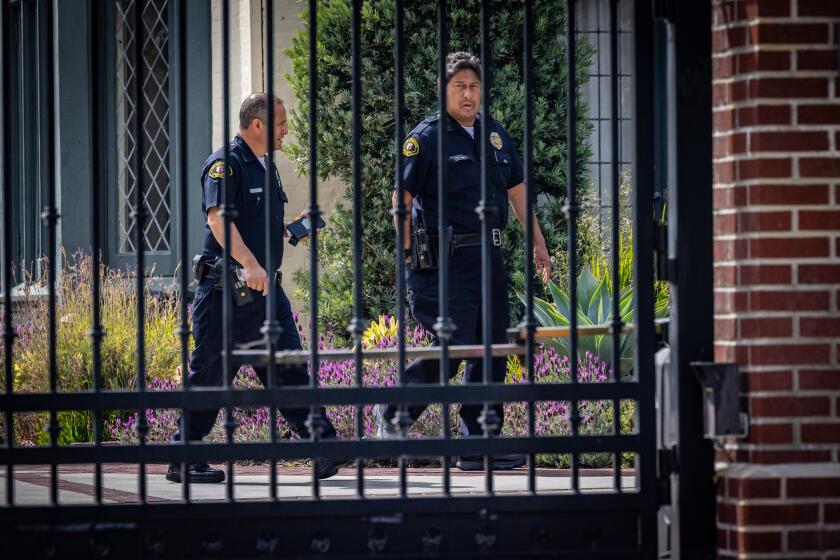How to punish a cyber-bully
When Megan Meier logged on to MySpace a little over a year ago, she was seeking a new start with new friends. She’d had some hard times: She considered herself overweight, had been bullied in school and had low self-esteem.
Still, things seemed to be getting better. She had just started eighth grade at a new school in Dardenne Prairie, Mo., had lost 20 pounds and made some new friends. Her parents had recently restored her Internet access. (She had lost that privilege when she and a friend had created a secret My- Space page.)
Shortly after getting her access back, Megan was contacted on My- Space by a boy named Josh Evans. He said that he was 16, that he was home-schooled and that he recently had moved to nearby O’Fallon. He was a dream: He played the guitar and drums; he was handsome; and he told Megan that he liked her a lot.
Josh went into detail about his own difficult life and immediately struck a chord with Megan. For six weeks they corresponded. Then, when her infatuation was at its peak, Megan received a well-planned, well-timed blow. Josh suddenly told her, “I don’t know if I want to be friends with you any longer because I heard you’re not a very nice friend.”
Josh then apparently passed her messages on to others, unleashing a torrent of insults from others in an Internet pile-on. She was called fat and a slut. However, according to her father, the last message from Josh was the worst: “Everybody in O’Fallon knows how you are. You are a bad person and everybody hates you. Have a s----y rest of your life. The world would be a better place without you.”
Megan fell apart. She went to her room, tied a cloth belt around a support beam in her closet and hanged herself.
Perhaps the only shock that could rival Megan’s death was the news (given to her parents by a neighbor) that Josh had never existed -- he had been created by adults who lived nearby. These neighbors, supposed friends of the Meier family, had apparently laid the trap in retaliation for Megan’s treatment of their own daughter, the girl who had created the secret MySpace page with Megan.
Megan is only the latest victim of cyber-bullying. In Florida, Jeff Johnston, 15, hanged himself by his book-bag strap in 2005, and in Vermont, Ryan Halligan, 13, hanged himself in 2003 -- both victims of Internet harassment.
There are many disturbing aspects of this story, but two are of particular concern to a lawyer. First, Tina and Ron Meier were told that they had no clear legal recourse -- either criminal or civil. It is not a crime to be cruel and immature. Although there is a new law passed by the last Congress criminalizing the use of the Internet to “annoy,” it is a poorly written statute that is extremely likely to be challenged on constitutional grounds. Other well-established charges, such as child endangerment and other predatory crimes, would be hard to prove in this case.
There are civil charges that could conceivably be brought, such as negligence or intentional infliction of emotional distress, but the Meiers are running out of time to file. Although the law generally holds landowners liable for “attractive nuisances” they create that lure kids into dangerous conditions, there is no comparable law on the books for cyber-based lures.
A second disturbing aspect of the case is that the alleged culprits did not even face public scrutiny or stigma for their actions. The local newspaper refused to publish the name of the family responsible for the e-mails out of consideration, it said, for their young daughter. Other news outlets, such as Fox and CNN, followed suit, running stories that also withheld the names. In other words, simply because they had a child, the alleged perpetrators were given the benefit of anonymity.
The decision to protect the family’s identity was particularly strange because they are involved in a pending criminal case against Ron Meier after he allegedly caused about $1,000 damage to their lawn by driving a truck across it in the weeks after Megan’s death.
The Meier case is an example of a growing trend on the part of the media toward omitting names or identifying information from the public because of paternalistic concerns.
In one particularly alarming case, the Washington Post in 2000 withheld the race of a man who had stabbed an 8-year-old to death in his grandmother’s frontyard. Living near the crime scene in Alexandria and worried for our own children, my wife and I searched the newspaper for a description of the killer still at large. We were given the person’s height and general description but not his race -- because the newspaper generally declines to publish the race of criminal suspects. Thus, we did not know that Gregory Murphy was African American because the Post did not want to foster racial stereotypes.
The media also routinely decline to name victims in rape cases, even when the accuser is subsequently discredited. For example, after an investigation cleared the Duke lacrosse players, the media still refused to publish their accuser’s name under some twisted protection policy for false victims.
This week -- more than a year after Megan Meier’s death -- the names of the neighbors were finally disclosed in published accounts. The disclosure was largely the result of pressure from bloggers, who do not feel bound by the rules of mainstream newspapers and networks and who have been meting out their own form of Internet justice. The neighbors are Lori and Curt Drew, according to news reports.
The Drews’ daughter was certainly dealt a bad hand by her parents. However, the media puts itself on a slippery slope when it starts to protect accused wrongdoers on behalf of their progeny, offering a free pass for alleged predators who procreate.
It seems clear that the Drews did not want to kill Megan or even hurt her physically. They are not the first to be grotesquely transformed by a new technology that offers easy availability and anonymity to its users. Yet, if cyber-traps are to be deterred, there must be avenues to guarantee both forms of private relief and public record.
Megan never knew the true identity of those who trapped her, but the people of Dardenne Prairie have a right to know.
More to Read
Start your day right
Sign up for Essential California for news, features and recommendations from the L.A. Times and beyond in your inbox six days a week.
You may occasionally receive promotional content from the Los Angeles Times.






